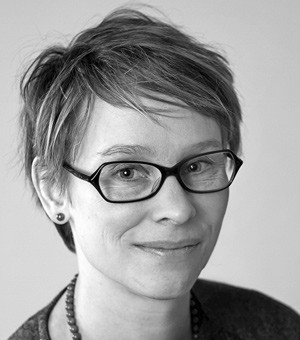The reception that we offer to people in need is crucial

Photo: Einar Nilsen
Europe is facing the largest refugee crisis since the Second World War. So far this year, more than 440 000 refugees and migrants have arrived on our continent from across the Mediterranean (1). Many of them come from Syria, which after four years of civil war has the largest number of displaced people in the world (2).
The picture of three-year-old Syrian Aylan Kurdi lying lifeless on a beach in Turkey is a heart-wrenching symbol of the human suffering that lies behind the statistics (3). In this humanitarian catastrophe, children are the most vulnerable. In Syria, doctors tell stories of children who are having arms or legs amputated because the hospitals lack the equipment and personnel required to treat injuries caused by bombing (4). Four million Syrians have sought refuge in neighbouring countries, where they often live in conditions of destitution, with no opportunity to send their children to school (2). Nearly 3 000 people have drowned in the Mediterranean this year, including many small children such as Aylan and his older brother (5).
Making a difference is possible. During the last few weeks, private individuals across Europe have shown that they care. Here in Norway, the Refugee Council has never before seen such a rush of private individuals and organisations willing to help (6). In the course of one month, the Norwegian Red Cross enlisted 4 000 new volunteers from all over the country. Many have started their own fundraising campaigns – the GPs in Tromsø raised NOK 1.5 million (7).
Doctors have a special responsibility. Refugees and asylum seekers who arrive in Norway may have been traumatised, suffer from physical injuries or need follow-up for chronic diseases. We need to ensure that the health services are prepared to receive these people and provide them with proper treatment – irrespective of their ethnic affiliation, religion or background. Health personnel, who can observe these needs at first-hand, must exert pressure on the authorities if necessary, to ensure that sufficient resources are allocated for this purpose.
Unfortunately, there are currently no international aid organisations operating inside Syria – the situation in the country is too dangerous. However, Syria’s neighbouring countries also need medical personnel and equipment. Although the humanitarian needs are enormous, the UN reports having received only 40 % of the aid funds requested for this year (8). Norway must do its part. During the last months, Norwegian health personnel have been working on board the vessel MS Siem Pilot, which takes part in search and rescue operations in the southern Mediterranean (9). In this way, we can make a contribution that extends beyond Norway’s borders.
On 7 July 1938, President Franklin D. Roosevelt chaired an international conference in Evian, France, to discuss what could be done to help the Jews who were being persecuted in Nazi Germany (10). Even though the European delegates were sympathetic, there was a strong reluctance to accept refugees – unemployment in Great Britain was too high, Austria did not want to import a «racial problem», other countries referred to economic difficulties or overpopulation. The borders remained closed, with devastating consequences.
Today, Europe is again facing a historic choice. Should we accept more refugees, or should we, like Hungary, erect barbed-wire fences along our borders? The German chancellor Angela Merkel is among those who have made their view clear. In August 2015, when the flow of refugees reached an all-time high, Germany chose to disregard the Dublin Agreement, which states that asylum seekers shall be returned to the EU country where they first arrived. Instead, the country opened its borders, and Merkel stated that Germany could settle 800 000 refugees this year – a figure which is orders of magnitude higher than what other European countries have been willing to receive. Even Norway can accept more, according to Victor D. Norman, professor of social economics at the Norwegian School of Economics. He estimates that we can quickly receive 100 000 refugees, a number equivalent to 2 % of the population (11).
In the long term, the current humanitarian catastrophe calls for political solutions and stabilisation of the regimes in the Middle East. However, we cannot close our eyes to the misery unfolding before us here and now.
As emphasised by the UN High Commissioner for Refugees (1): the acute crisis calls for European collaboration on distribution of refugees and increased aid to Syria’s neighbours to permit the refugees to resettle there. In addition, they need better opportunities to apply for asylum in Europe from there, to put an end to lethal and inhumane human trafficking.
Europe – and Norway – must make a real contribution. Let us welcome those who arrive in Norway after escaping from war, destitution and persecution. This is not only a matter of the refugees’ dignity, but also of our own.